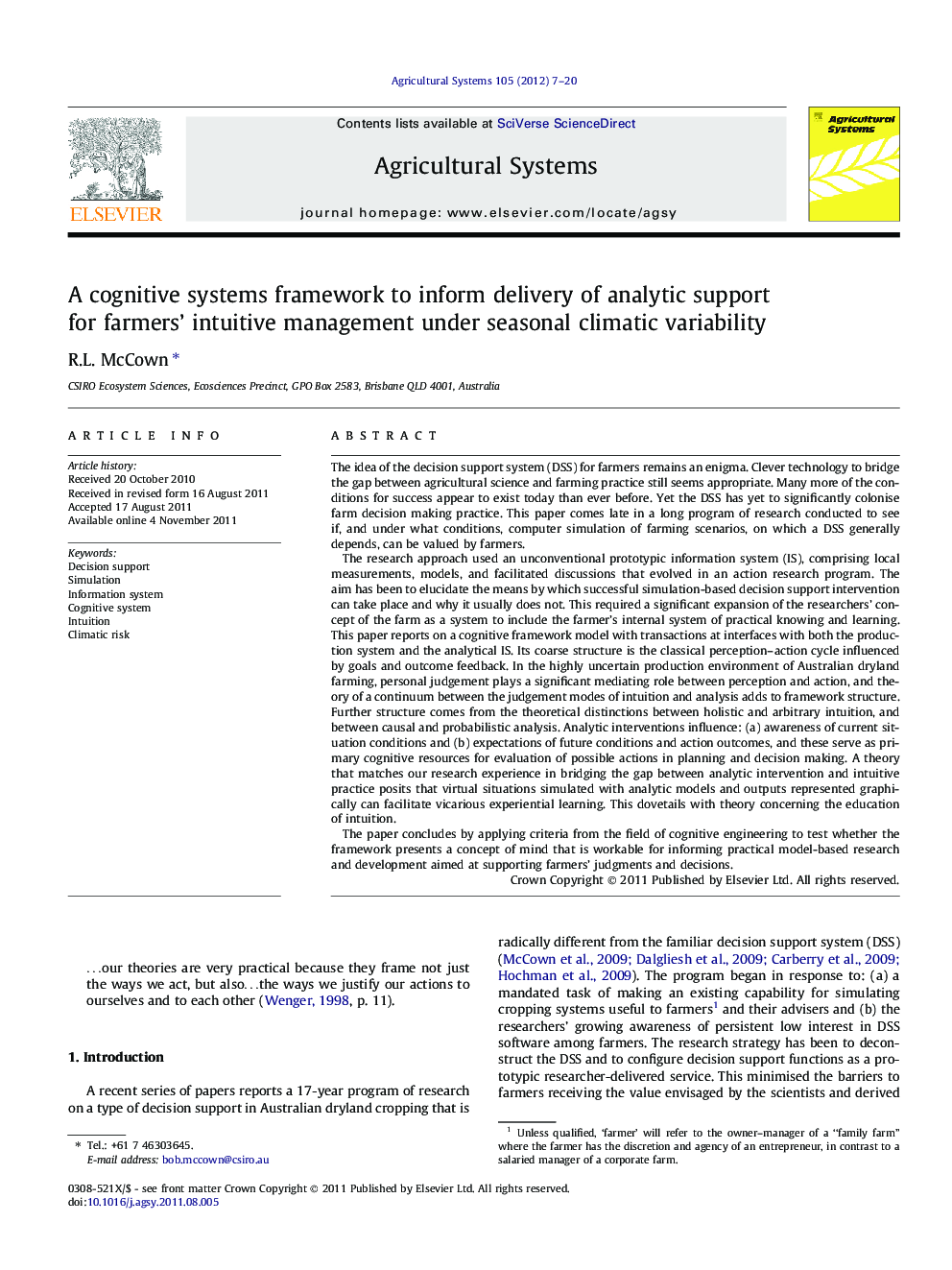| کد مقاله | کد نشریه | سال انتشار | مقاله انگلیسی | نسخه تمام متن |
|---|---|---|---|---|
| 4491569 | 1317863 | 2012 | 14 صفحه PDF | دانلود رایگان |

The idea of the decision support system (DSS) for farmers remains an enigma. Clever technology to bridge the gap between agricultural science and farming practice still seems appropriate. Many more of the conditions for success appear to exist today than ever before. Yet the DSS has yet to significantly colonise farm decision making practice. This paper comes late in a long program of research conducted to see if, and under what conditions, computer simulation of farming scenarios, on which a DSS generally depends, can be valued by farmers.The research approach used an unconventional prototypic information system (IS), comprising local measurements, models, and facilitated discussions that evolved in an action research program. The aim has been to elucidate the means by which successful simulation-based decision support intervention can take place and why it usually does not. This required a significant expansion of the researchers’ concept of the farm as a system to include the farmer’s internal system of practical knowing and learning. This paper reports on a cognitive framework model with transactions at interfaces with both the production system and the analytical IS. Its coarse structure is the classical perception–action cycle influenced by goals and outcome feedback. In the highly uncertain production environment of Australian dryland farming, personal judgement plays a significant mediating role between perception and action, and theory of a continuum between the judgement modes of intuition and analysis adds to framework structure. Further structure comes from the theoretical distinctions between holistic and arbitrary intuition, and between causal and probabilistic analysis. Analytic interventions influence: (a) awareness of current situation conditions and (b) expectations of future conditions and action outcomes, and these serve as primary cognitive resources for evaluation of possible actions in planning and decision making. A theory that matches our research experience in bridging the gap between analytic intervention and intuitive practice posits that virtual situations simulated with analytic models and outputs represented graphically can facilitate vicarious experiential learning. This dovetails with theory concerning the education of intuition.The paper concludes by applying criteria from the field of cognitive engineering to test whether the framework presents a concept of mind that is workable for informing practical model-based research and development aimed at supporting farmers’ judgments and decisions.
► A cognitive frame interprets farmers’ oscillation between intuition and analysis.
► Intuitive farmers came to value simulation when own soil and weather data used.
► Forecasting as a “history of the future” analytically delimited by soil water storage limits.
► Intuitive prediction of water supply risk uses education of intuition via analysis.
Journal: Agricultural Systems - Volume 105, Issue 1, January 2012, Pages 7–20